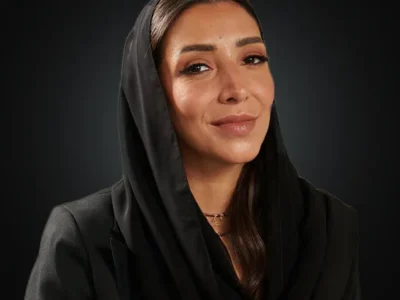Navigating Funding in the Middle East: A Beginner’s Guide to Financing Your Beauty Startup
Launching a beauty startup in the Middle East requires not just a great idea and a solid business plan but also a keen understanding of the financial landscape. The process of securing funding can be daunting, especially for newcomers. However, with the right strategies and knowledge, navigating this essential phase can lead to successful capital acquisition. This guide will explore the avenues of funding available in the Middle East, providing practical advice for entrepreneurs looking to finance their beauty startups.
Understanding the Economic Landscape
The Middle East boasts a dynamic economic environment where the beauty industry continues to flourish. Countries like the UAE, Saudi Arabia, and Qatar have seen a surge in consumer spending on beauty products, driven by high disposable incomes and a young, image-conscious population. This growth has caught the attention of local and international investors looking for promising opportunities in the region’s beauty sector.
Initial Considerations: Self-Funding and Bootstrapping
For many entrepreneurs, the journey starts with self-funding or bootstrapping. This approach requires using personal savings or borrowing from friends and family. While this can be a risky endeavor, it allows full control over the business with minimal external pressures. It’s also a testament to your commitment, a signal that might attract investors later by showing that you have skin in the game.
Angel Investors and Venture Capital
Angel investors are high-net-worth individuals who provide capital for a business start-up, usually in exchange for convertible debt or ownership equity. They not only bring funds but often offer invaluable advice and contacts. Networking events, startup meetups, and platforms like MAGNiTT can connect you with potential angel investors in the Middle East.
Venture capital (VC) firms, on the other hand, manage pooled funds from many investors to invest in startups and small businesses. VCs are particularly interested in high-growth industries like beauty and cosmetics. They can provide significant funding and expertise but often require a sizeable share of your business. Engaging a VC firm early can be beneficial, as many offer scaling support, strategic advice, and additional rounds of funding.
Government Grants and Incentives
Several Middle Eastern countries offer grants and incentives to stimulate entrepreneurship. For instance, the Saudi Arabian government, through various initiatives under Vision 2030, provides funding and support for startups, particularly those led by women. Similarly, the Khalifa Fund in the UAE offers financial and training support to help develop local enterprises. These grants are often competitive but can be a great option because they don’t require giving up equity.
Crowdfunding
Crowdfunding is another viable option for beauty startups in the Middle East. Platforms like Zoomaal and Aflamnah cater specifically to the region and can help you raise funds by presenting your idea directly to consumers. This method not only raises capital but also markets your product and tests its appeal in the real world. Successful crowdfunding campaigns can also attract attention from larger investors.
Bank Loans and Islamic Finance
Traditional bank loans are a straightforward way to secure funding, though they may be hard to come by for brand new startups without prior earnings history. An alternative in the Middle East is Islamic finance, which complies with Sharia law and its prohibition of interest. Islamic banks offer products like Murabaha (cost-plus financing) and Mudaraba (profit-sharing), which can be useful for startups looking to align with Islamic financial principles.
Incubators and Accelerators
Startup incubators and accelerators are prevalent in the Middle East and can provide much more than just funding. They offer mentorship, office space, and access to a network of investors and industry experts. Beauty-specific programs can provide tailored advice on product development, marketing, and regulatory compliance, which are crucial in the beauty industry.
Tips for a Successful Funding Journey
1.Develop a Robust Business Plan: Your business plan should clearly articulate your value proposition, market potential, competitive analysis, and financial projections.
2.Build a Strong Team: Investors fund people, not just ideas. Assemble a team that shows capacity for execution and resilience.
3.Understand Your Market: Demonstrate deep knowledge of the beauty market in the Middle East, including customer behaviors, preferences, and trends.
4.Be Prepared for Diligence: Investors will scrutinize every aspect of your business. Be transparent and have all your documentation ready and well-organized.
5.Leverage Local Insights: Highlight how your startup caters to specific regional needs or gaps in the beauty market, tailoring your pitch to emphasize local relevance.
Conclusion
Navigating the funding landscape in the Middle East requires a combination of preparation, networking, and strategic thinking. By understanding the various funding avenues and what they entail, beauty entrepreneurs can better position themselves to attract the necessary capital to launch and grow their businesses. With the beauty industry’s rapid growth in the region, now is an opportune time to venture forth with confidence and creativity.














